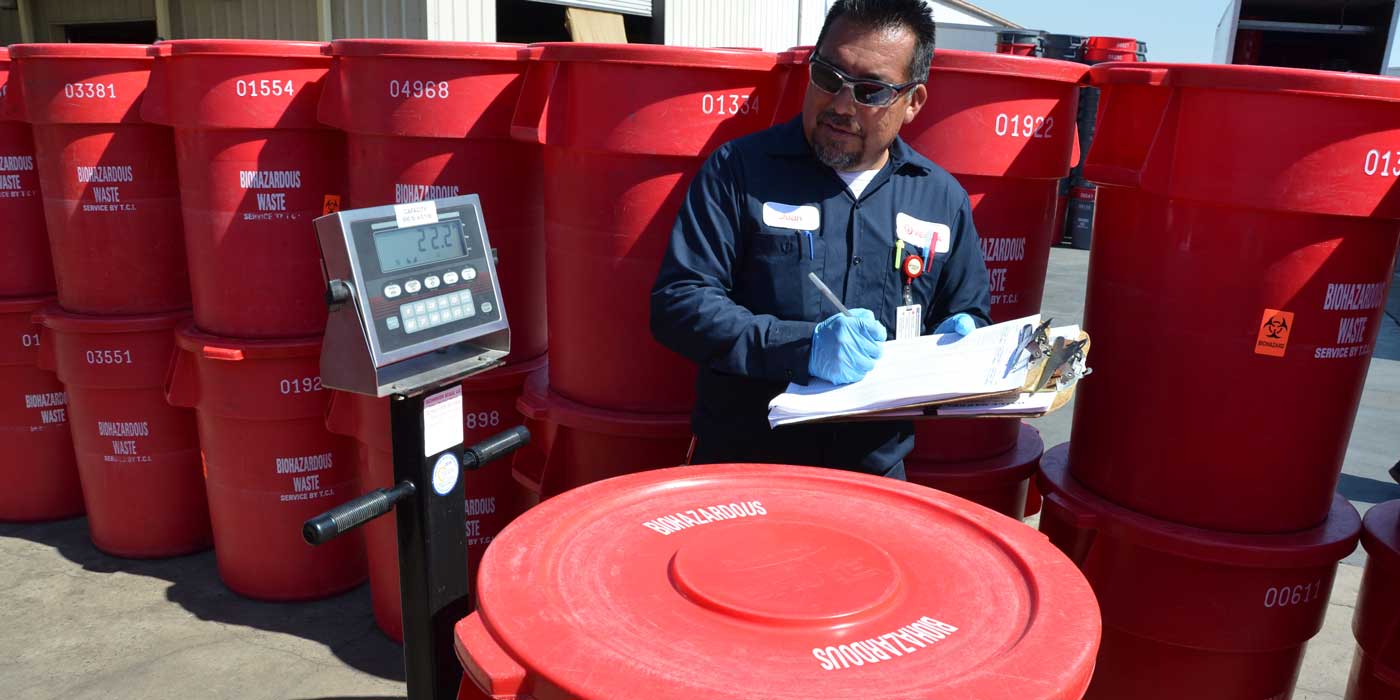Ecological Responsibility: The Eco-Friendly Technique to Medical Waste Disposal
Ecological Responsibility: The Eco-Friendly Technique to Medical Waste Disposal
Blog Article
Discovering Various Garbage Disposal Options for a Cleaner Setting
In the search of a cleaner environment, the administration of waste disposal has actually emerged as a critical prime focus for lasting growth. With a plethora of waste disposal alternatives offered, ranging from conventional landfill methods to cutting-edge waste-to-energy modern technologies, the selection of just how we manage our waste has significant implications for our world's well-being. By analyzing the numerous techniques and methods utilized in reusing, composting, incineration, garbage dump monitoring, and waste-to-energy procedures, a much deeper understanding of their impacts and effectiveness can be obtained. The quest for optimum garbage disposal approaches that prioritize environmental conservation while satisfying the needs of a growing population continues to be a pushing issue in today's world.
Recycling Approaches
Applying efficient recycling methods is essential in lessening waste and promoting sustainability in our setting. Reusing involves the procedure of converting waste materials right into reusable objects to avoid unneeded disposal. Among the most typical recycling techniques is material recovery, where products like paper, metal, glass, and plastic are collected, arranged, and refined to create new products. This process not just preserves natural deposits but likewise reduces power consumption and greenhouse gas discharges associated with generating brand-new products from the ground up.
Another crucial recycling technique is composting, which entails decomposing natural waste like food scraps and lawn trimmings into nutrient-rich dirt. This procedure not only draws away organic waste from garbage dumps yet also creates a beneficial resource for horticulture and farming. In addition, upcycling is an imaginative recycling technique that involves transforming old or thrown out products right into products of greater high quality or worth. By including these numerous reusing methods into our waste monitoring techniques, we can substantially lower our environmental footprint and relocate in the direction of a much more sustainable future.

Composting Techniques
Effective waste monitoring methods, such as recycling techniques, lead the way for a cleaner environment, and currently, shifting the focus to 'Composting Techniques', we discover lasting ways to decay organic waste for ecological advantage. medical waste removal service.
Composting is an all-natural procedure that transforms organic waste, like food scraps and backyard trimmings, into a nutrient-rich soil change. The trick to effective composting lies in producing the appropriate balance of eco-friendly products, such as fruit and vegetable scraps, and brownish products, like dried out twigs and leaves. These materials disintegrate with the aid of microorganisms, breaking down the waste right into useful garden compost.
There are numerous composting techniques available to suit different demands. Typical yard composting entails layering natural products in a bin or pile and regularly turning the mixture to aerate it. Vermicomposting, on the various other hand, uses worms to break down natural matter into compost (click here). For those with restricted space, interior composting systems offer a hassle-free remedy. By using composting methods, we can reduce the quantity of waste sent out to garbage dumps while developing a beneficial item for enhancing soil and sustaining plant growth.
Incineration Cons and pros
Incineration, as a waste disposal method, provides both advantages and drawbacks that merit careful consideration in the realm of lasting waste management techniques. On the favorable side, incineration can significantly reduce the quantity of waste, reducing the need for garbage dump area and potentially decreasing greenhouse gas discharges. Incineration additionally allows for the recovery of energy with the generation of electricity or warmth, adding to source recovery. Additionally, the process can be made use of to destroy dangerous materials, providing a risk-free approach for handling particular kinds of waste that may posture risks to public health and wellness and the setting if left untreated.
Nonetheless, there are noteworthy disadvantages to incineration. One significant concern is the possible launch of harmful pollutants right into the air, such as dioxins, heavy metals, and particulate issue, which can have damaging impacts on human wellness and the setting. Additionally, the high preliminary investment and functional costs of incineration facilities position economic difficulties, making it a much less cost-effective choice contrasted to various other waste monitoring approaches. Mindful monitoring and policy are important to mitigate these adverse influences and take full advantage of the benefits of incineration as component of a comprehensive waste monitoring method.
Garbage Dump Monitoring Approaches
Landfills play an important function in waste management and environmental preservation by giving a containment system for the disposal of solid waste products. By condensing the waste, the volume is decreased, allowing for even more waste to be accommodated over time.
In addition, the application of everyday cover methods is vital in lessening smells, protecting against clutter, and minimizing the tourist attraction of insects. Covering the disposed waste at the end of each day assists to include odors and protect against prospective environmental contamination. Additionally, the surveillance of garbage dump gas emissions and leachate degrees is important in guaranteeing that environmental criteria are satisfied which any type of potential threats to surrounding environments are minimized.

Waste-to-Energy Technologies
Among the ingenious strategies to waste management involves utilizing Waste-to-Energy technologies to convert solid waste into usable energy resources. Waste-to-Energy (WtE) innovations include an array of procedures that intend to draw out power from waste materials via thermal, chemical, or organic methods. This conversion procedure not just minimizes the volume of waste that ends up in garbage dumps yet likewise creates important energy resources such as electrical power, warmth, or biofuels.
There are numerous approaches of Waste-to-Energy conversion, consisting of incineration, pyrolysis, and gasification. Incineration involves melting waste at heats to create warm and electrical energy. Gasification converts waste right into a syngas, which can be made use of for power generation or chemical production. Pyrolysis breaks down organic materials making use of heats in the absence of oxygen, generating gas, bio-oil, and char.
Applying Waste-to-Energy innovations can aid mitigate ecological problems connected with typical waste disposal approaches while all at once giving a sustainable energy resource. However, cautious consideration needs to be offered find out this here to exhausts control and making sure the sustainability of feedstock supplies for these modern technologies to be truly valuable for a cleaner environment.

Final Thought
To conclude, discovering numerous waste disposal choices such as reusing, composting, incineration, land fill monitoring, and waste-to-energy technologies is vital for advertising a cleaner environment - click here. Each approach has its own advantages and difficulties, yet by using a mix of these approaches, we can work towards minimizing the quantity of waste that finishes up in landfills and eventually add to an extra lasting future for generations to find
With a plethora of waste disposal options readily available, ranging from traditional garbage dump techniques to ingenious waste-to-energy innovations, the selection of how we handle our waste has significant ramifications for our world's wellness. medical waste removal service.Incineration, as a waste disposal technique, provides both benefits and downsides that warrant cautious consideration in the realm of sustainable waste management methods.Garbage dumps play an important role in waste management and environmental conservation by offering a control system for the disposal of solid waste products. By condensing the waste, the volume is minimized, permitting for even more waste to be fit over time
One of the innovative techniques to waste administration involves harnessing Waste-to-Energy technologies to convert solid waste into functional power resources.
Report this page